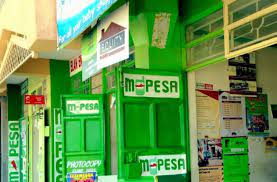The betting craze pervading Kenya has helped leading payment platform M-PESA to rake in about $1.5 billion (Sh169.1-billion) in betting through Safaricom’s M-Pesa in the year to March. Reports show that the value of bets jumped 23.8 percent from Sh136-billion ($1.2-billion) a year earlier.
The Kenyan government is trying to crack down on gambling by imposing higher taxes both on the companies and those who are gambling. People in the country continue to bet despite this and Safaricom, the Kenya Revenue Authority (KRA) and other firms are scoring big time.

Safaricom’s revenue from betting rose by 40 percent to Sh5.98-billion ($50.7-million) last year, placing it higher among other firms that are listed on the Nairobi Securities Exchange (NSE).
The telco company relies heavily on business lines like data and M-Pesa to compensate for its stagnant revenues from mobile calls amid a saturated market.
Betting in the country, according to reports, is most popular among employed or unemployed youth who find the activity thrilling besides seeing it as an opportunity to make quick cash.
Betting is now the second-largest business line by revenue under M-Pesa’s business payments after business-to-consumer (B2C), which generated sales of Sh11.4-billion ($98.2-billion) in the year from March 2022.
The Betting and Licensing Control Board (BCLB) the biggest beneficiaries of the betting craze are private firms. BCLB said that these firms are not moved by the government’s efforts to crack down on them by imposing higher taxes.
BCLB CEO Peter Mbugi said that the majority of the 24 new firms are owned by locals. They include Mofabet registered as Johannes Swift, Zukabet registered as Muvana Limited, Unibet, Hollywood Bets, and Safebet.
The Kenyan government says that a majority of Kenyans involved in betting are low-income earners

